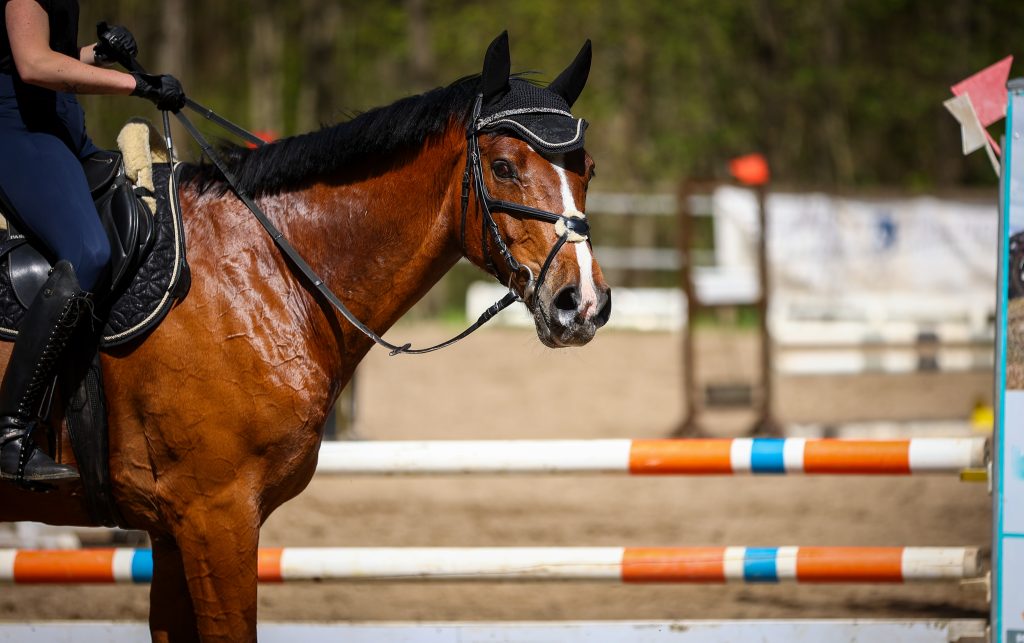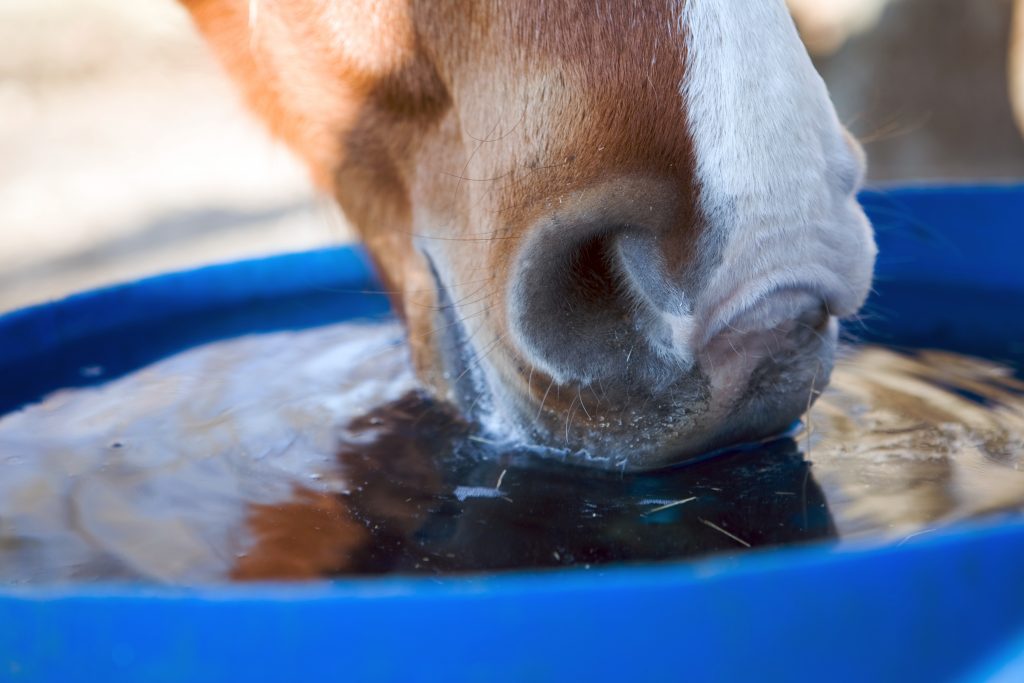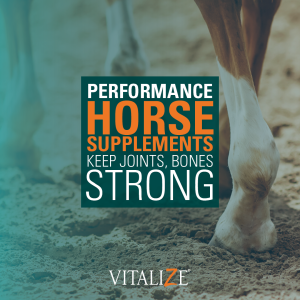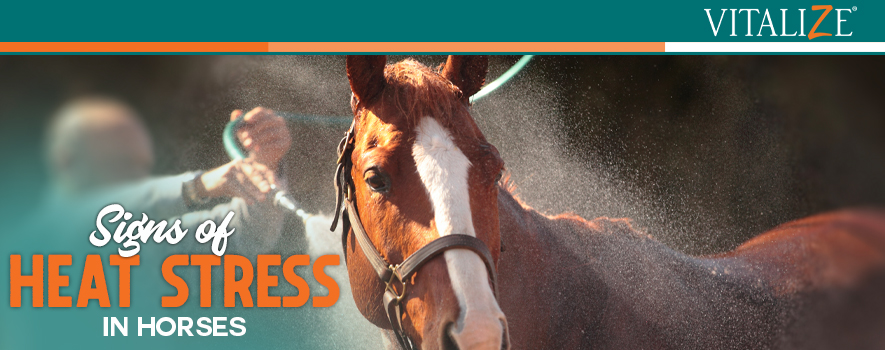
Horses have a natural ability to handle extreme temperatures when kept within the upper and lower limits of their comfort zone, known as the “thermoneutral zone.” This means horses can maintain a normal body temperature without expending excess energy for heat dissipation or generation when the temperatures are between 40 and 80 degrees Fahrenheit. When temperatures are hotter than 80 degrees, horses will likely begin to encounter heat stress.
How can you tell if your horse is showing signs of heat stress? Here are the most common signs that occur during or prior to heat stress in horses:
Profuse Sweating
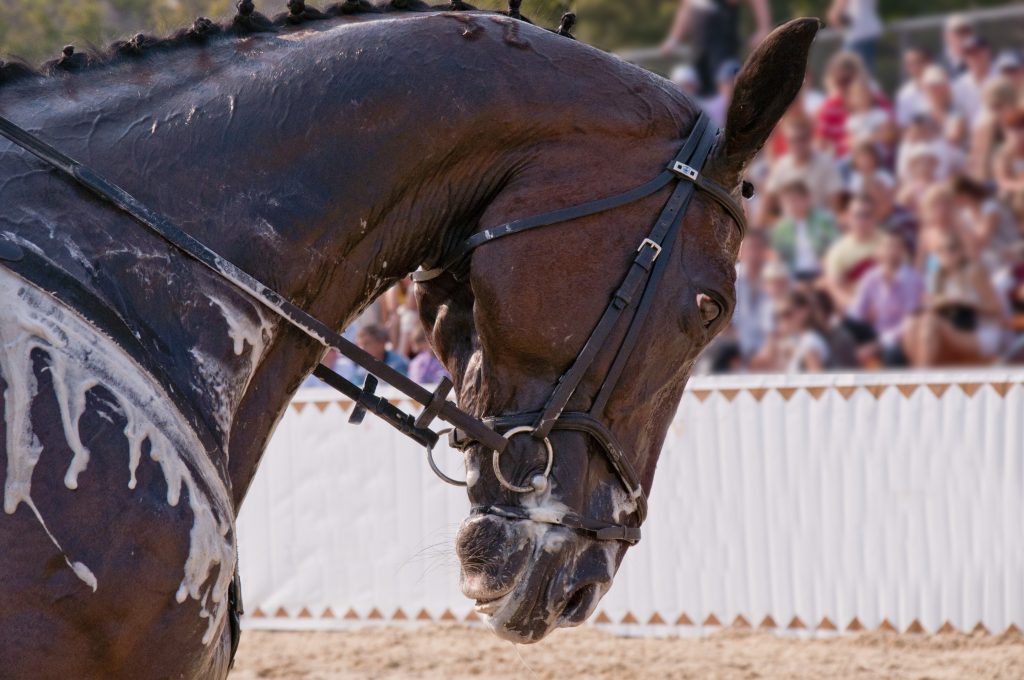
- Profuse Sweating. Just like humans, horses use a cooling process known as evaporation off of the skin. Sweating is a good thing. But, if your horse works up a rich lather, you know they are working too hard to try to remain cool, which is a sign to stay alert in the heat. Sweat has a harder time evaporating during high humidity levels, which is why it is vital to take into consideration the heat index vs. just temperature alone.
NO Sweating
- NO Sweating. On the contrary, some horses suffer from a condition where they do not sweat, known as anhidrosis. Anhidrosis is a condition where horses do not sweat adequately, which causes a build-up of internal heat and increased body temperatures, sometimes reaching nearly 110° F. While the direct cause of anhidrosis is not known, it is often thought to be associated with the over-stimulation of sweat glands due to environment or exercise stress hormones, causing the glands to shut down. Others suggest it could also be associated with metabolic or hereditary conditions. This insufficient body temperature regulation not only decreases the horse’s ability to perform but also puts him at risk of hyperthermia and heat stroke. If you have a non-sweater, you should always be on high alert for your horse’s health in the heat.
Rapid Respiratory & Heart Rate
- Rapid Respiratory & Heart Rate. Where an increase in heart rate is harder to see without taking vitals, an increase in respiratory rate is very apparent to the eye. Rapid respiratory rate is easily seen in the flaring of the horse’s nostrils. If your horse is flaring his nostrils for longer than normal during cool down, he could be at risk for heat stress. Always pay attention to how hard your horse is breathing before starting training again or heading back to the barn. In the most stressful of hot days, add a couple more laps at the walk to help your horse cool down after working.
Dehydration
- Dehydration. If your horse is under heat stress, he may become easily dehydrated due to the excessive sweating. During the hottest days, the water requirement for horses increases from 6-10 gallons to nearly 15 gallons per day. Supplement a product with salt, sugar or added electrolytes to encourage adequate drinking to help maintain the water requirements under these conditions.
Decreased Gut Sounds
- Decreased Gut Sounds. Because your horse’s body is using the sympathetic nervous system (aka the “fight or flight” response) to address its high heart and respiratory rate, its parasympathetic nervous system (aka the processes used at rest, such as digestion) is set aside. During prolonged periods of heat stress, your horse could show decreased gut sounds, putting him at a higher risk for colic and digestive upset.
Stumbling or Depression
- Stumbling or Depression. If signs are ignored, heat stress can heighten to heat stroke, a more serious condition that is often first shown in stumbling, dizziness or depression in horses. If you see this behavior, contact your veterinarian immediately.
Because heat stress can be detrimental to your horse’s health, monitoring the outdoor temperature, humidity and your horse’s activity level in these summer months is vital. Fortunately, Vitalize® has created a solution to help your horses win the game against heat this summer!
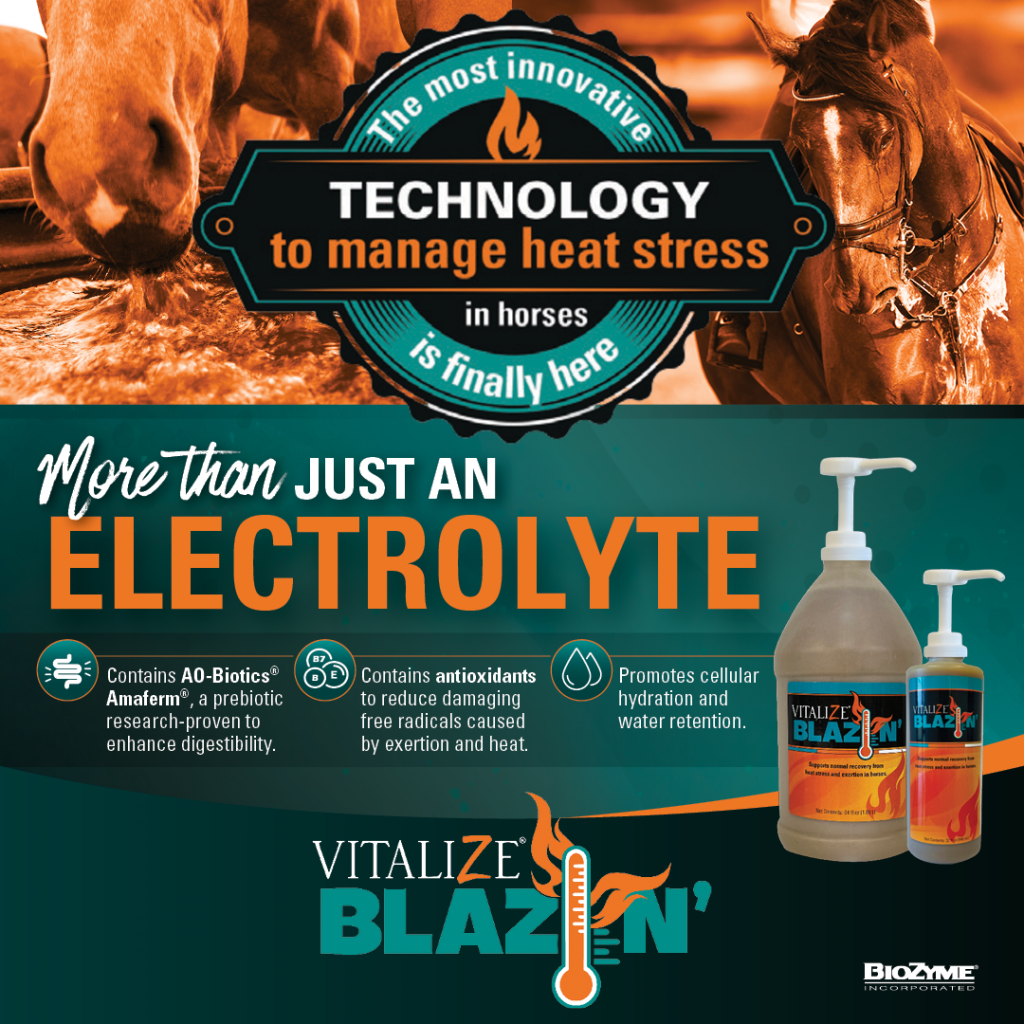
Vitalize Blazin’, the most innovative product available to help manage the effects of heat stress in horses, is a liquid product to support normal recovery from heat stress and exertion in horses. It contains a proprietary blend of L-arginine, L-citrulline, and Aspergillus oryzae to support blood flow and cooling.
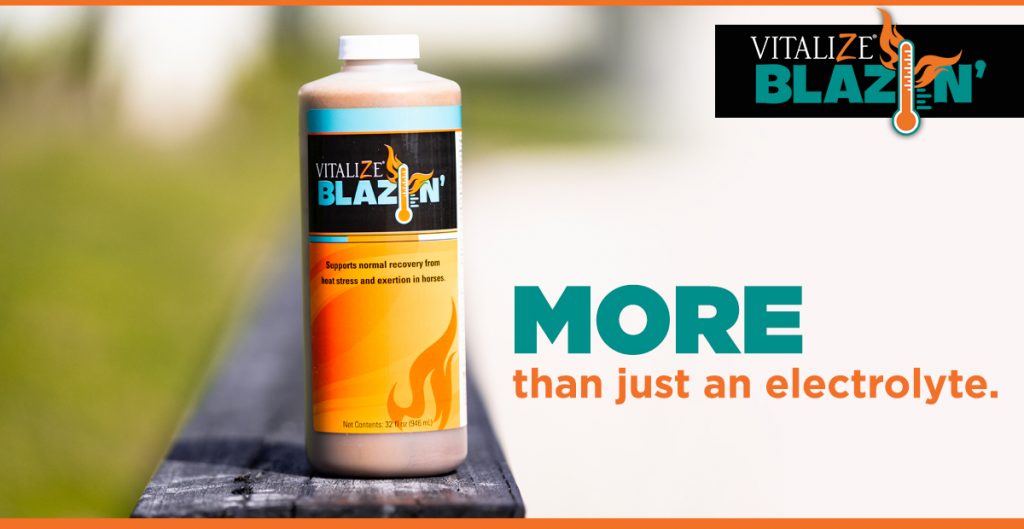
In addition, it promotes water retention and contains antioxidants to mitigate damaging free radicals that are caused by exertion and exposure to heat. Aspergillus oryzae also works to circumvent the effects of heat stress and research shows Aspergillus oryzae decreases respiratory rates and helps maintain normal body temperature.
Blazin’ also supports cooling mechanisms to help prevent overheating if your horse is not sweating well, and contains salt, sugar and minerals that help with sweat production and adequate water intake.
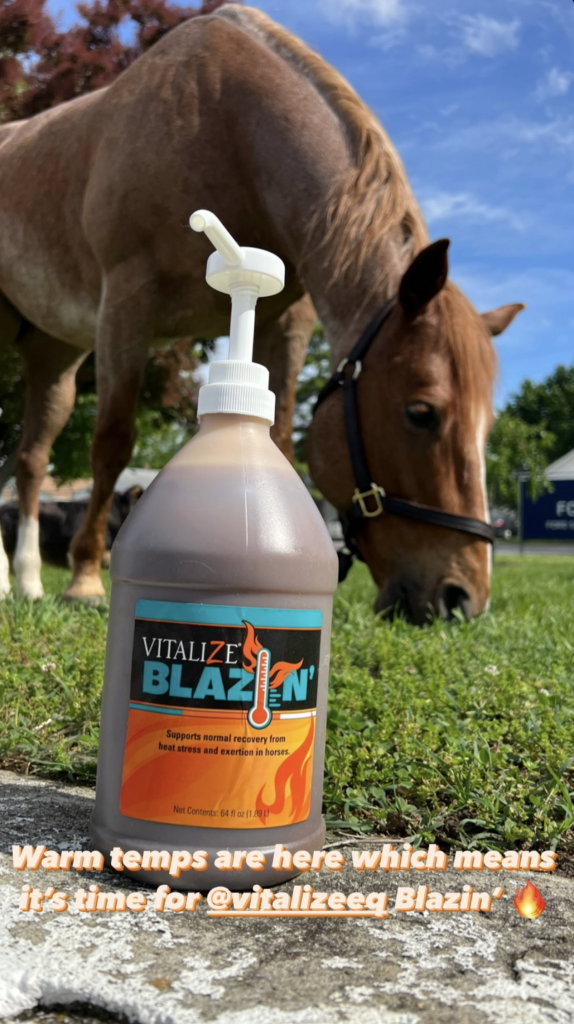
Read some recent testimonials from our customers:
“I have seen Blazin‘ firsthand comparing to horses on our place that are not on anything help with their recovery, and my horses are able to take more runs and more stress in the warm conditions and not feel like they are dragging or tired. They’re also drinking extremely well!” – Shai Schaefer
“Blazin’ has been great here in Texas as temperatures reach toward 100°! I took my colt for exhibitions, and he seemed much cooler and relaxed that day when it was 95° and working! Great products! Would recommend!” – Jennifer Knight
“I was desperate for anything to help my old (23 years old OTTB) gelding that struggles in the heat, so I took the plunge and bought a bottle. I started using it just over 2 weeks ago right before a big heat wave in MA. I am really happy with it – my guy eats it top dressed on his food and he’s a picky eater. And I do think it made a difference – he seemed much happier (usually he would be dull and miserable through the heat) and did not lose body condition. Normally he’d drop weight, go off his food and would be crampy and colicky and there were no signs of this. I’m planning to keep him on it thru the summer here based on how he’s doing so far on it.” – Jen Merrill Hunt
